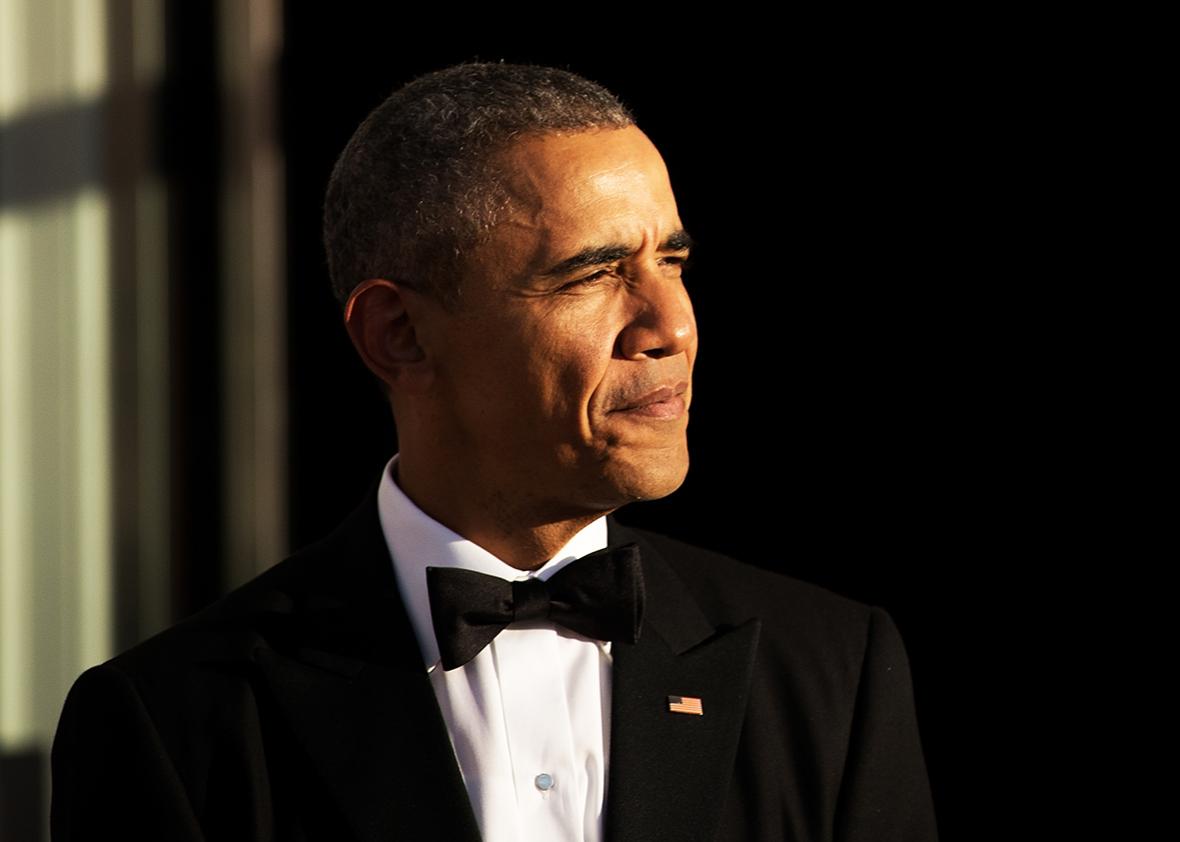Barack Obama is a doctor of jurisprudence, not a doctor of medicine. So it was slightly surprising when one of the most respected medical journals around, the Journal of the American Medical Association, known as JAMA, ran a special commentary by the president himself, in its online edition of this week’s issue. What wasn’t surprising was the topic of choice—the Affordable Care Act—or the main conclusions of the piece. (Backed by data, Obama wrote about how the ACA has lowered the uninsured rate, improved access to care, and reduced the amount of medical debt that gets sent to collection agencies.)
What business does Obama have toiling away over science research when he’s supposed to be running the country? It’s not like he was actually conducting experiments in the Oval Office. Despite all of the signs of being a normal, peer-reviewed paper—an abstract, figures, data-driven conclusions, and references pages—the commentary is basically just an opinion piece. Technically, it’s what JAMA calls a “special communication,” a seemingly arbitrary label that has been applied in the past to everything from a comprehensive review of best practices in treating respiratory disease, to a one-page statement on all the great things the National Institutes of Health does.
It is slightly unusual for such a communication, particularly one with so much data, to have just one author—others have had more than a dozen. (The average number of authors on scientific papers in general is 5.5.) Of course, Obama is also the president, so what’s weirder, crediting him for something he almost certainly didn’t write or listing his name alongside the many people who did write it? At least he acknowledges seven other people who planned, analyzed data, and actually wrote the thing in the “Additional Contributions” section.
Also, listing him as the sole author makes sense, because the piece reads like an op-ed. “Regardless of the political difficulties, I concluded comprehensive reform was necessary,” he writes in the intro, taking on the same blandly scientific tone a researcher might use to explain an experiment protocol choice, though he often employs this rhetoric when making far more political statements. Additionally, while the piece is full of data, none of the findings contradict the president’s policies. Obama also departs from academic arguments to flirt with the political. Near the end of the commentary, he calls for a state-sponsored option for health insurance but doesn’t quite have the data to back it up. It feels a little bit like he’s saying, “Part of my plan is working, so let’s do another thing I wanted to do originally.”
Obama’s article was rigorously fact-checked and was only accepted into the journal after two months of “multiple edits and revisions,” JAMA’s editor-in-chief Howard Bauchner told Fortune. Bauchner, a pediatrician, also wrote an accompanying editorial in praise of the ACA. The issue included three other accompanying editorials from economists, which are largely positive though occasionally critical of the claim that the ACA has lowered health care costs. One, from Dartmouth economist Jonathan Skinner, questions how much the law had actually curbed health care spending, while Brookings Institution economist Stuart M. Butler questions whether savings have reached consumers. (Fellow Brookings Institution economist Peter Orszag praised the law as “remarkably successful” in his commentary.)
So, sure, it’s kind of bizarre that Obama did this. If he had waited just six months until he’d departed from office, it might have felt a little less gimmicky. But there’s nothing sinister afoot, either—just remember that it’s commentary, not science.
Of course, free time will soon be in no short supply for the president. Perhaps academic papers will become Obama’s version of former President George W. Bush’s dog paintings.
